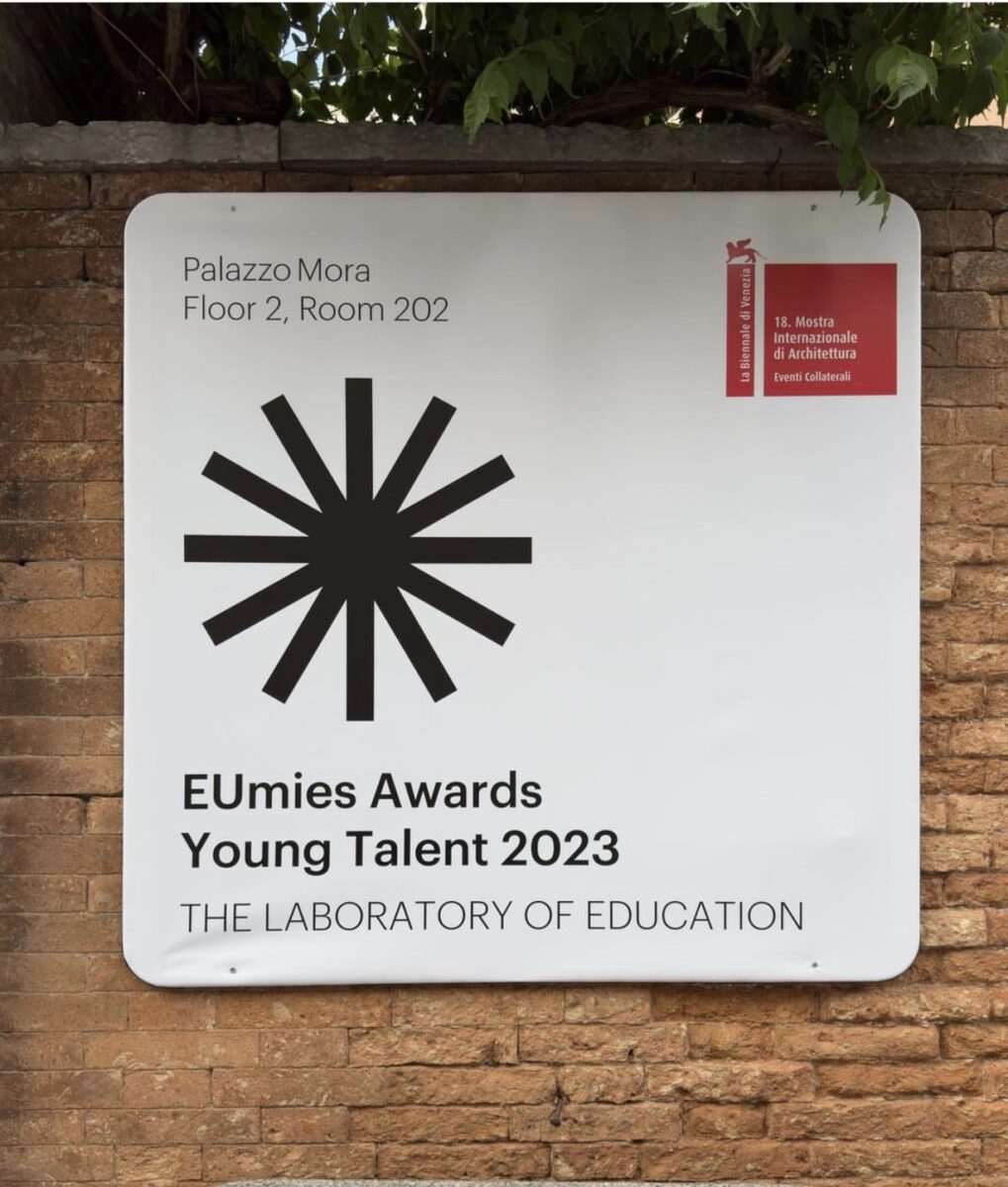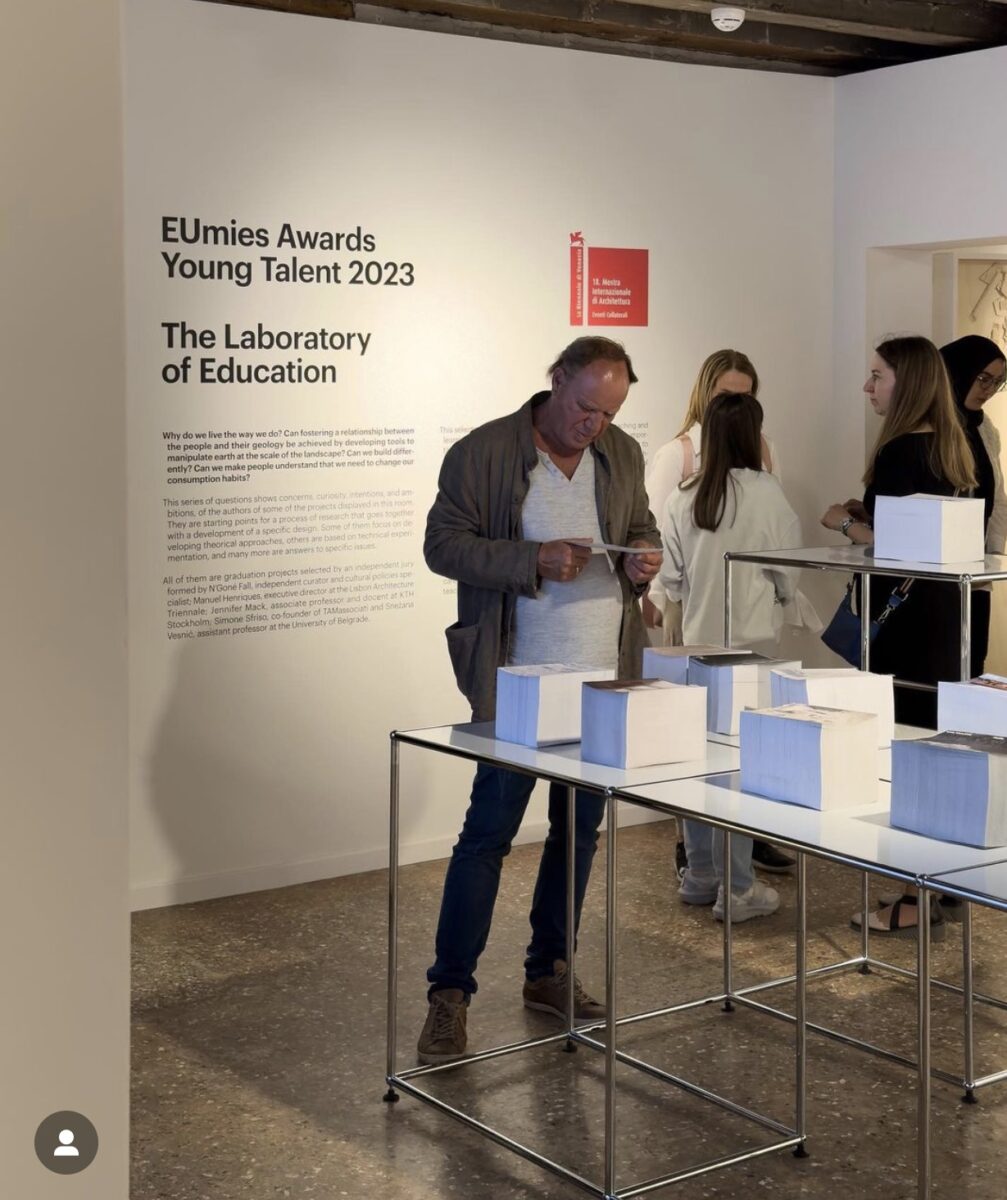When: Wednesday, 9th of June 2021, 16:00-18:00 (BST)
Register: https://www.eventbrite.co.uk/e/how-will-we-live-together-westminster-at-the-venice-biennale-tickets-155634983425
Join us for an online event that celebrates University of Westminster‘s work that is being exhibited at the prestigious 2021 Venice Architecture Biennale (22nd May-21st Nov).
Academics based within the College of Design, Creative and Digital Industries have co-produced three different installations to respond to the theme: How will we live together?
At the event, we will hear more about the ideas underpinning each piece of work, and – given the fundamental themes they address – discuss how architecture and practice based research can help us to better understand the world’s most pressing challenges.
Following an introduction to the three installations, Ifor Duncan, an academic based at Ca’ Foscari University of Venice, will respond to the work. These contributions will be followed by a panel discussion and questions from the audience.
More details about the installations and the academics involved are provided below.
Monsoon Assemblages (led by Lindsay Bremner) and Office of Experiments (led by Neal White) have created an immersive installation that challenges and redefines ideas of border, scale and agency. It draws on climate data and field work to convey how climate change and the Anthropocene are resulting in increasing monsoon volatility, shorter rainy seasons and more frequent extreme weather events. The installation investigates these events through the flight of the Globe Skimmer dragonfly that follows the monsoon from east Africa to southeast Asia and back again. Video footage of the dragonfly collected during field work is projected into the exhibition space highlighting the vulnerability of the dragonfly to shifting monsoonal dynamics.
In a collaboration with the V&A Museum, Shahed Saleem’s Pavilion looks at the self-built and often undocumented world of adapted mosques to explore contemporary multiculturalism in London. The work explores three different case studies that illuminate stories of immigration, identity, and community aspiration. The cases are the Brick Lane mosque, a former Protestant chapel then Synagogue; Old Kent Road mosque housed in a former pub; and Harrow Central mosque, a purpose-built space that sits next door to the converted terraced house it used to occupy. The Pavilion is partly carpeted, as in a mosque, and these stories are explored through 3D architectural reconstructions, filmed interviews and photographs.
The African Fabbers School video-installation project, curated by Paolo Cascone and Maddalena Laddaga, proposes an innovative research by practice agenda for the next generation of European and African architects. The African Fabbers School [AFS] is an itinerant laboratory of ecological design and self-construction for community-oriented projects between Europe and Africa. This ecosystem of site-specific projects has structured an abacus of paradigmatic design to build modus operandi based on a learning by doing methodology. Thanks to the interaction between people from different backgrounds (including African artisans, local communities, European students) the [AFS] investigates the relationships between traditional knowledges, advanced design processes and digital manufacturing.
Respondent
Ifor Duncan is a Post-doctoral fellow in Environmental Humanities at the Center for the Humanities and Social Change, Ca’ Foscari University of Venice. He is a writer and inter-disciplinary researcher, with a PhD from the Centre for Research Architecture, Goldsmiths. His research concerns the relationships between political violence and watery spaces and materialities. Previously Ifor taught at the CRA and in the School of Architecture at the Royal College of Art.














